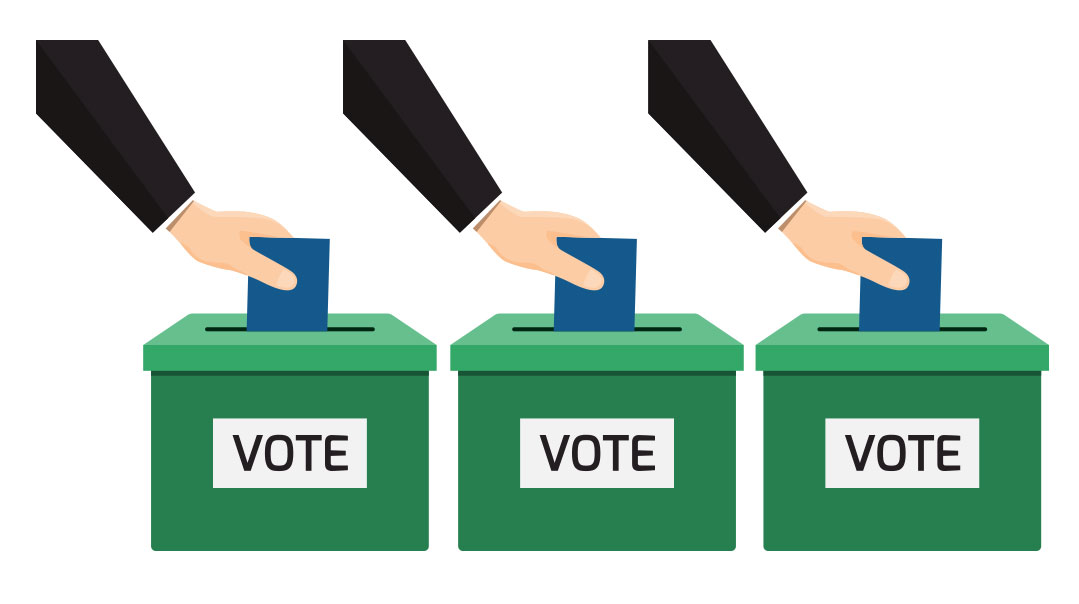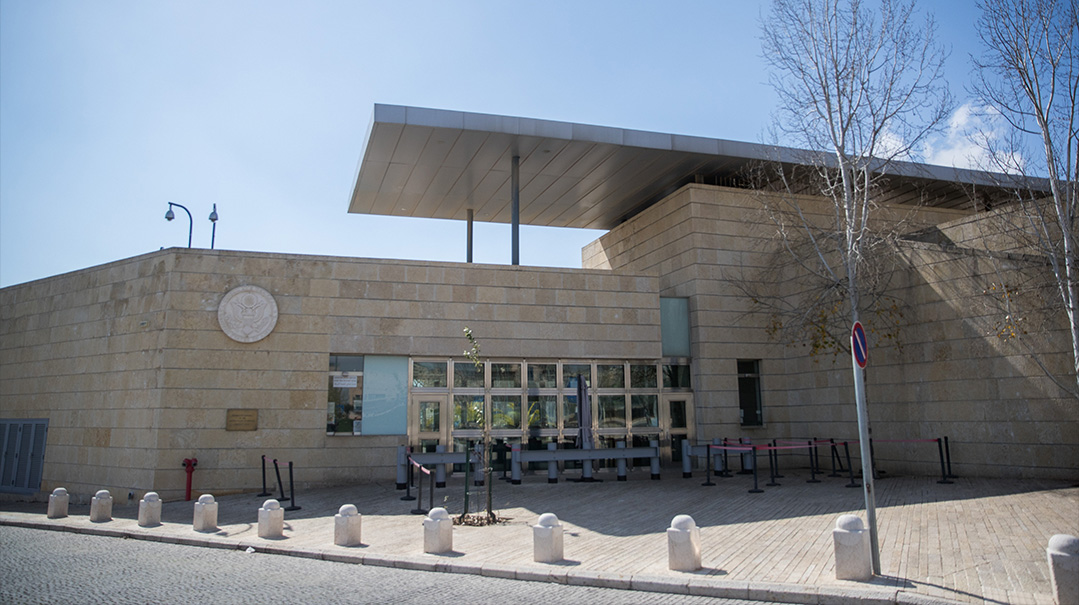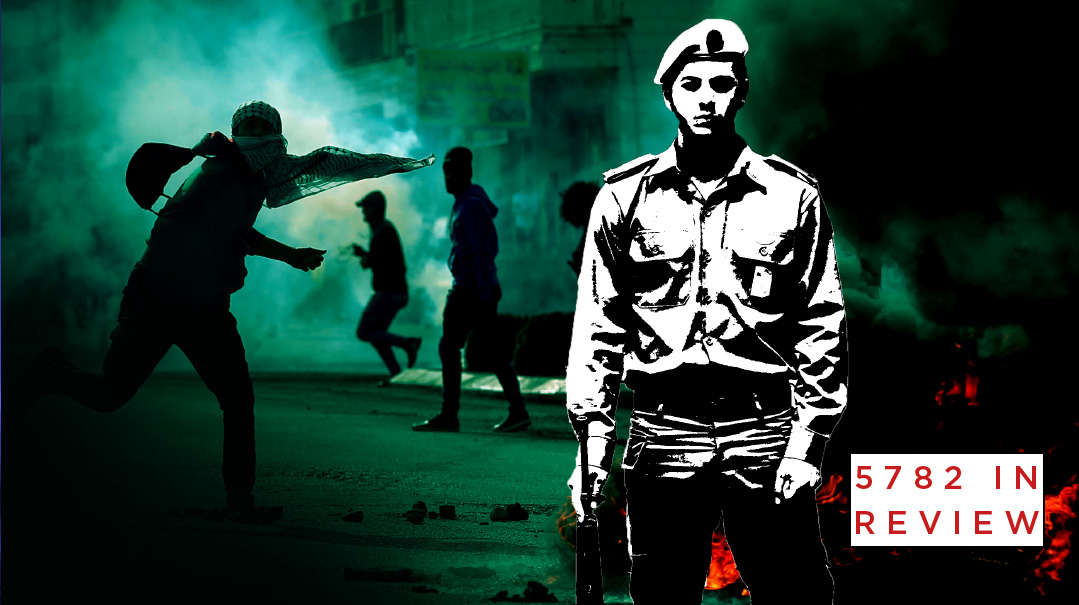Benny and Bibi Battle for the Last Votes

Israel’s political landscape as third elections loom

Next Monday Israelis will head to the polls in the third election over the last 12 months, and there’s no guarantee that it will be the last. If the stalemate persists and neither Benny Gantz nor Binyamin Netanyahu can form a government, a fourth election will be held in September 2020.
Public fear of a fourth election is a central concern for all the parties, and they are all battling apathy among their bases. Polls this week show that an apathetic electorate is a bigger issue for Blue and White and Likud than for the smaller, ideological parties.
Beyond defense and taxes and the issue of the paralyzed government (which has frozen everything from the construction of new apartments to day-care subsidies for the children of working parents), this election’s central issue is simple: Should Bibi Netanyahu remain prime minister?
Blue and White is hoping there are enough Likud voters who believe Netanyahu’s time is up. According to the party’s internal polling, there are two or three seats’ worth of Likud voters who could be swayed to vote for Gantz. These are mostly high-income Ashkenazim who live in urban areas, many of whom started voting for Likud in the Menachem Begin era. This group is characterized by a distaste for Bibi and his legal woes, along with hard-line nationalist views on defense and international relations.
Both parties also sense a shift among young, well-educated voters with low to middle incomes. This demographic admires Netanyahu’s diplomatic achievements, but is deeply dissatisfied with the Israeli economy. The Likud’s polling suggests that these voters want to replace Netanyahu, even if its members aren’t sure how things will change under Benny Gantz.
The Likud, too, is focusing its efforts on stealing two or three seats from its main rival. The Likud has identified about 300,000 party voters who either stayed home in September or chose to vote for another ticket.
The Likud is attempting to rally the troops, in part, by convincing the public that Gantz will ask the Arab Joint List party to join his coalition, which would be anathema to many swing voters. Gantz has denied that accusation, but any look at the numbers shows that it will be very difficult for Gantz to form a government without at least tacit support from the Arab parties.
United Torah Judaism and Shas are also battling apathy among their supporters. Gedolei Yisrael have attended several rallies to encourage Torah-observant voters to turn out en masse for the success of the chareidi parties. Right now, polls show they will each win seven to eight seats, similar to last election.
Nationalist Country
In the right-wing strongholds over the Green Line, many still intend to vote for Itamar Ben Gvir’s Otzma Yehudit, although not a single poll shows it crossing the threshold. Many in the settlements are furious at Jewish Home leader Rafi Peretz for breaking his agreement with Ben Gvir at the last minute in favor of an alliance with the New Right’s Naftali Bennett and Ayelet Shaked.
“We won’t vote for liars and deal breakers,” a spokesperson for the settlement movement told me. “Rafi Peretz of Jewish Home isn’t interested in us. He doesn’t view us as part of the dati-leumi community. There’s a whole segment of the population that doesn’t count, that’s dismissed as hooligans and troublemakers.”
In the past, this leader added, many of his cohorts voted for Naftali Bennett, hoping he would represent their interests. “But now we realize he’s just Netanyahu 2.0,” he said. “He deserted Jewish Home, leaving it with millions in debt, and went off with Ayelet Shaked to form the New Right. Then they excluded Otzma Yehudit.”
And what about supporting Netanyahu?
“Netanyahu is being generous when he calls himself the head of the right — he’s the head of the center. He isn’t ideologically right wing. He does what’s best for Netanyahu.”
The Indictment Carousel Turns
Bibi Netanyahu isn’t the only major party head facing legal trouble. Last week, the Attorney General’s Office announced it was investigating possible criminal activity between police officials and a security firm once headed by Benny Gantz, Fifth Dimension.
According to a report published by former state comptroller Yosef Shapira, the police department, under former head Roni Alsheich, and Fifth Dimension, under Benny Gantz, may have misused public money. The company went bankrupt last year after one of its chief investors, a Russian oligarch, ran into trouble with the US government.
Last week, interim state attorney Dan Eldad announced that the police will open a criminal investigation into the affair.
As of Tuesday this week, the scandal has done little to damage Gantz, who is not a target of the probe. Still, Likud campaign officials are debating exactly how to use the investigation to their favor. There are two possible courses of action, they say. The first is to zero in on the allegations in hopes of creating a feeling that “everyone’s corrupt anyway, so you might as well vote for Netanyahu.” But others worry that focusing on a tangential issue will blur the Likud’s main message about the Blue and White joining the Joint List, and won’t create much of an impression anyway after 14 months of campaigning.
Netanyahu started his campaign on a positive note, emphasizing his achievements in the international arena, as exemplified by the Trump peace proposal. Afterward he shifted to a negative campaign against Blue and White, charging that Gantz can’t form a government without the support of the Joint List. Netanyahu is hesitating over whether to double down on highlighting the investigation into senior figures in Fifth Dimension and Gantz.
Drawing attention to the legal situation could be a double-edged sword. Netanyahu’s situation is not equivalent to Gantz’s — the Blue and White head isn’t a suspect, while Netanyahu will soon stand trial for three charges of bribery and breach of trust. (It’s already clear that Doron Cohen, CEO of the company and former Mossad senior figure, is the prime suspect in the case, and he’s expected to be interrogated in the coming days.) If Netanyahu raises the issue of criminal wrongdoing, it will likely serve only to remind voters that he will soon be the first sitting prime minister to stand trial.
(Originally featured in Mishpacha, Issue 800)
Oops! We could not locate your form.













